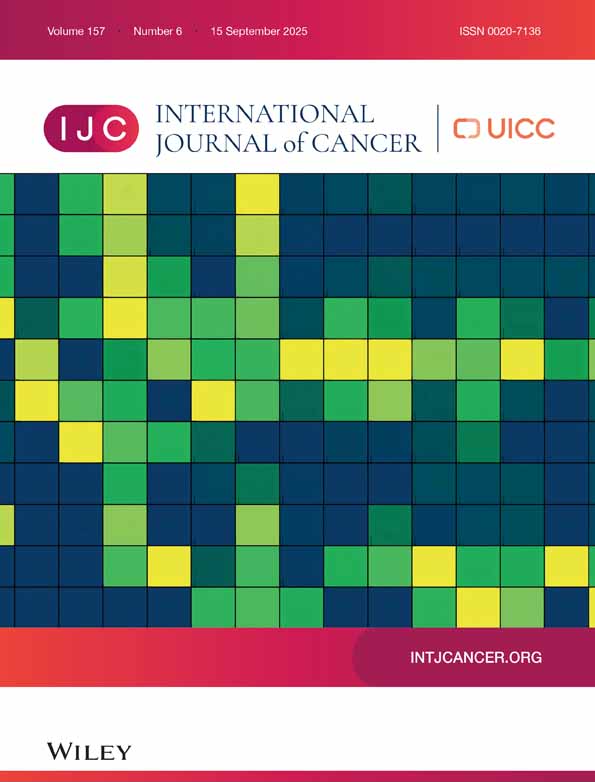GM-CSF gene expression and protein production in human colorectal cancer cell lines and clinical tumor specimens
Abstract
Granulocyte-macrophage colony stimulating factor (GM-CSF) gene expression and protein production were investigated in colorectal cancer cell lines and surgical specimens. In 6 of 6 established tumor lines, expression of the GM-CSF gene was observed by reverse transcription polymerase chain reaction (RT-PCR). Furthermore, for 2 of the lines, the cytokine was detectable in ≥100 pg/ml amounts in culture supernatants by enzyme-linked immunosorbent assay tests. Addition of recombinant GM-CSF at doses ranging between 30 pg and 30 ng/ml did not appear to affect the proliferation of colorectal cancer cell lines as measured by 3H-thymidine incorporation. GM-CSF gene expression was then examined in surgical specimens by a densitometry-assisted, semi-quantitative RT-PCR technique. In the 10 samples analyzed, significantly higher expression was detectable in tumors, as compared with autologous healthy mucosa sampled in the vicinity (2 cm) or at distance (10 cm) from the neoplastic focus. Immunohistochemistry studies performed on 13 specimens led to the identification of intracytoplasmic GM-CSF in tumor cells in 9 samples. In 6 of these, positivity of stromal fibroblasts and lymphocytes adjacent to the tumor was also observed. In contrast, intracellular GM-CSF was only detectable in 2 cases in untransformed epithelial cells, close to the neoplasm, but never in healthy mucosa at distance from the tumor. Infiltration by dendritic cells (DC) was also investigated. In 5 of 8 colorectal cancers tested, DC aggregates accounted for more than 10% of stromal cells. Lower numbers were detectable in healthy mucosa. However, DC infiltration could not be correlated with the presence of GM-CSF-positive neoplastic cells in the tumor specimens. Remarkably, cultured DC were unable to exert significant cytotoxic activity against colorectal cancer cells in vitro. Int. J. Cancer 77:378–385, 1998. © 1998 Wiley-Liss, Inc.




